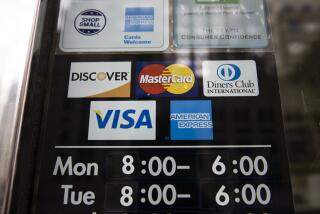U.S. Tightens Hold on Spot as No. 1 Debtor in World
- Share via
WASHINGTON — The United States strengthened its grip on the title of world’s largest debtor nation in 1989, ending the year with a net debt of $663.7 billion, up a sharp 25% from the previous year.
The latest figures, based on data collected by the Commerce Department, are certain to heighten the emotional debate over whether the United States is losing control of its financial destiny to foreigners.
The Commerce Department report showed that U.S. holdings of overseas assets rose by $146.9 billion last year to $1.412 trillion, a gain of 11.6%.
But foreign holdings in the United States climbed at an even faster pace of 15.6%, rising by $279.6 billion to $2.076 trillion.
The $663.7-billion imbalance between what Americans own overseas and what foreigners own in the United States is the country’s net debtor position. Many private economists believe that it will top $1 trillion within a few years.
As recently as 1983, the United States was still the world’s largest creditor nation, a position now held by Japan. The 1983 surplus of $89 billion fell to $3.3 billion in 1984 and disappeared altogether in 1985, the year the country became a net debtor for the first time in 71 years.
The surplus was eroded by America’s huge merchandise trade deficits as Americans transferred billions of dollars into foreign hands to pay for imported cars and television sets.
Those dollars have been reinvested in everything from U.S. Treasury bills to prime real estate in many American cities, raising cries that foreigners are buying America.
The Commerce Department reported that 54% of the increase in foreign holdings in 1989 came from direct investment, defined as at least 10% ownership of a company.
Britain retained its position as the country with the largest amount of direct investment in the United States at $119.14 billion, a 17% increase over the 1988 level. Japan was No. 2 with $69.70 billion in direct investment, up 31% from 1988. The largest Japanese transaction last year was Sony Corp.’s $3.4-billion purchase of Columbia Pictures.
While supporters defend the foreign buying surge as proof of America’s attractive investment opportunities, critics contend that the development shows the United States has become overly dependent on foreign capital to finance its huge budget and trade deficits.
“The United States is going ever more in debt. That keeps interest rates higher in this country because of the need to attract foreign capital, and it hurts our ability to compete internationally in a number of ways,” said Allen Sinai, chief economist of Boston Co.
The Commerce Department’s Bureau of Economic Analysis took the unusual position of deleting the debtor position from Monday’s report, although it supplied enough detail that it was a simple matter to arrive at the bottom-line figure.
BEA Director Allan Young denied that there had been any pressure from the Bush Administration to obscure a politically embarrassing figure. He said he ordered the net debtor figure omitted because of a belief that it had become statistically invalid, a problem the BEA is working to correct.
More to Read
Inside the business of entertainment
The Wide Shot brings you news, analysis and insights on everything from streaming wars to production — and what it all means for the future.
You may occasionally receive promotional content from the Los Angeles Times.










